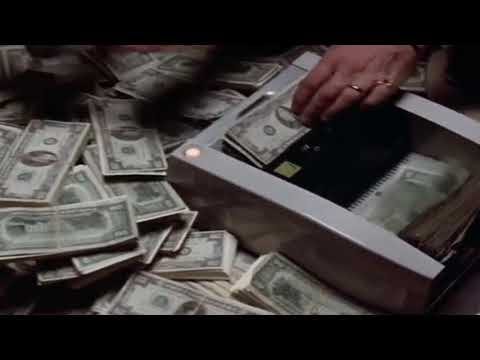I’ve been more scarce over here than intended, entirely for lack of time rather than any shortage of takes. So when POLITICO asked me to contribute a snap reflection on the end of the McConnell era, I had to dash off some brief thoughts. Because that got clipped in the editing process, I wanted to put it here for posterity, since I think the last graf is rather important, if not the entire point.
Mitch McConnell will depart his post as GOP leader later this year an icon to his allies and an archvillain to his enemies--and he wouldn't have it any other way. What else can you say about a man who takes such obvious relish in being cast as the grim reaper of the Senate. Who not only collects unflattering political cartoons, but displays them on his wall. Who gamely plays the mirthless baddie, serving alternatively as primary pin-cushion and general election shield. Whose egoless, unsentimental devotion to power and the wielding thereof remains the hallmark of his record-setting tenure at the helm of the Republican conference.
His exit is bittersweet, both for himself and for the GOP. His single most consequential act as leader--and make no mistake, the election-year blockade of Merrick Garland was the most audacious decision in the history of congressional leadership--helped usher in a President who would cement his legacy, transform his party, and ultimately confound his ability to lead it in any meaningful way, an irony that is surely not lost on McConnell.
For better or worse, the Republican Party McConnell leaves behind is not the one he enlisted in so many decades ago as a young Louisville attorney. It's not even the one he found when he reached the top rung nearly two decades ago. It is a party in transition, one that doesn't quite know where it wants to go or what it wants to stand for, except in boisterous, disdainful, reflexive opposition to the political class and its sensibilities. McConnell's decision is as much a function of this reality as it is an acknowledgement that time has finally caught up to him. To his credit--unlike certain politicians--he is stepping aside for a new generation of leaders to take the reins. Love him or hate him, the institution will be worse off for his relegation.
I have yet to see any truly essential reading on what it all means, though JMart’s latest comes closest.
But the exercise itself made me think back to this Elaina Plott feature from 2020 which in retrospect almost surely marked his apex. It does a great job capturing the fleeting moment when McConnell transcended mortal politics to achieve legendary status, even among the base voters who once (and again in the not so distant future) cursed his name.
It is difficult to overstate the political currency of being labeled a “fighter.” As Liam Donovan, a Republican strategist, put it, the only thing more universal than a party’s desire for fighters is the belief that only the other side has them. This was particularly true for Republicans in President Barack Obama’s first term, even after they installed John Boehner as speaker.
“At that time, you started to hear grousing about how weak Republicans were, particularly Boehner,” Mr. Donovan said. The prevailing line of thinking, he explained, was that “G.O.P. leadership is always weak, and we need someone like Harry Reid who’s willing to be strong.”
Perhaps no leader in recent memory has haunted the Republican Party quite like Mr. Reid, the Senate majority leader from 2007 to 2015. Here was a man who appeared to heed Mr. Obama’s call during the 2008 election, when he reminded supporters of “the Chicago way,” as immortalized by Jimmy Malone in “The Untouchables”: “If they bring a knife to the fight, we bring a gun.”
For Republicans, the assumption of a knife may have seemed generous. Lawmakers like Mr. Boehner rose on the promise of legislative victories, only to have Mr. Reid ensure that most House spending bills never saw the Senate floor. While Republicans did manage to secure the occasional half-loaf, be it an extension of Bush-era tax cuts or the imposition of automatic budget cuts, it was never enough to dispel an underlying sense of futility. As conservatives saw it, government-funding negotiations inevitability ended in spending packages that largely took care of Democratic priorities, coupled with the image of a Republican Party that had yet again capitulated.
All of which may have fueled the party’s deep “resentment” for Mr. Reid and the left writ large, Mr. Donovan has written. But those feelings, he noted, were “often tinged with envy, if not begrudging admiration.”
Indeed, Mr. Reid helped entrench the perception that Democrats were willing to play hardball — and, more important, that they were all willing to play hardball. There were no stragglers, it seemed, in Mr. Reid’s party, no Susan Collinses or Lisa Murkowskis to fret over.
The irony, of course, is that Mr. Reid’s image as a craven conductor was in many ways the product of Mr. McConnell himself, whose relentless use of the filibuster often meant that Mr. Reid had to rely on party-line governance. But it was as if Republicans, in fixating on their opponents, had failed to acknowledge that the ruthlessness they craved in their leaders was already well at work.
The whole thing hits differently in retrospect.
More thoughts to come on this, including what’s next, but once more for old time’s sake:


